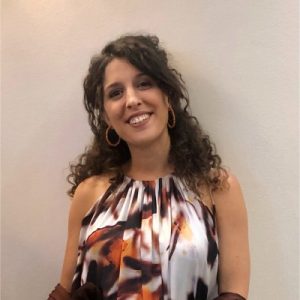At the F20 conference in Rio De Janeiro in June, Alliance digital editor Charlotte Kilpatrick spoke with Laura Señan Cagiao, director of strategic partnerships at Fundación Avina about the importance of Global South participation in discussions about climate change. Here Señan Cagiao explains the dangers of ‘tokenizing’ Global South organisations, and her hopes for the G20 meeting this fall in Rio.

Laura Señan Cagiao
Laura Señan Cagiao: Fundación Avina is a Latin American Foundation that this year is turning 30 years old this year. Over the past decade, we have supported over 12,000 initiatives led by our 8,000 strategic allies across 30 countries in seven regions, including North America, Central America, South America, Africa, Asia, Europe, and the Caribbean.
Currently we our value is the articulation of collaborative processes, supporting with financial and non-financial resources different kinds of social capital around key issues that generate imbalances that affect the dignity of people and care for the planet. We always highlight that the role of Fundación Avina is to co-define with our partners and our local partners where are those collaboration gaps. And this is why we decided to start working on climate 20 years ago, because we identified this as a key collaboration gap within different countries of Latin America.
Our work centers on three interconnected pillars of sustainable development: Climate Action, Democratic Innovation, and a Just and Regenerative Economy. But, we always stress the collaboration approach because it’s important are the needs of our local allies what shapes our strategic view.
Charlotte Kilpatrick: So can you tell me a bit where the idea for this conference came from?
LSC: Avina is a member of F20 since 2017 when the F20 was born. Klaus Milke and Stefan Schurig created this global movement of foundations advocating around G20 meetings. At that time Avina was already very active in the climate governance space, and we shared the view there was a gap in philanthropy understanding its role in the climate policy agenda. Now it’s changed considerably and philanthropic engagement is higher but it has not always been like this.
So since then we are part of the steering committee of F20 as one of our priorities is a the democratization of the global climate governance. As a Global South foundation for Fundación Avina this is a key element, not only because climate and inequalities are two of the key agendas for our work, but because it’s impossible to address all these issues without transforming the governance mechanisms we have. Philanthropy can play a catalyctic role on this.
CK: For you, why is it important to have Global South represented at the table?
LSC: Well, first of all we’re talking about systemic imbalances. We’re talking about power relationships and how those power imbalances between are reflected in the decisions that shape global policies. And this is especially important in the climate conversation, and it is not only the moral imperative of Global North supporting Global South, but really the Global South leading the transformations that are needed because otherwise we’re not going to act on time.
CK: Have you found that Global North foundations, organisations, governments are more willing to listen to the Global South, or is that conversation still a bit difficult?
LSC: I think that this is still ongoing conversation. Inclusive and collaborative leaderships are really trying to articulate a broader conversation, but not just from the complaining position but really bringing the proposals and leading the way. I think with this kind of leadership we can accelerate the process.
I have the feeling sometimes that ‘Global South’ could be a new token in sense of, okay, so the narrative has challenged the current status quo of the international order, but it’s also very inventive. For Global South foundations for example, having access to decision-making spaces, to those conversations where the agenda is being set, it’s not that easy.
That’s a reason why supporting these conferences for Avina is very important and why we are coordinating the conversation on Climate Adaptation tomorrow. We are talking about local solutions and how to address climate crisis for local communities. There is a concern about the risk of reinventing the wheel when it comes to adaptation climate solutions. In several spaces, especially those in the global North, often we hear other foundations trying to bring climate solutions developed in the Global North to the Global South. That’s how it’s always been. So to your question on the willingness to listen, maybe listening can happen but then action and acknowledging this imbalance, because it’s a power issue.
CK: Is there any particular project that you were proud of that you’re working on now with Avina? Or a collaboration that you can highlight for us?
LSC: Okay, I’m going to give you an example. So Avina has been working for 20 years in inclusive recycling agenda.
We started working on this agenda at local level and we ended up sitting together with global stakeholders at the Latin American regional platform for inclusive recycling, because we are convinced of the need of scaling up the local context to our regional and global discussion was necessary to effectively transform the realities of those grassroots waste pickers. I think that this is a great example of philanthropic collaboration structure that was not born as a climate agenda but it’s nowadays proving huge contributions as climate adaptation effective measures.
‘It is not only the moral imperative of Global North supporting Global South, but really the Global South leading the transformations that are needed because otherwise we’re not going to act on time.’
I’m talking about this example because climate solutions, especially Global South perspectives and experiences are not quick fixes. It takes a lot of time to move the status quo, it takes a lot of time to transform practice effectively.
CK: Impatient?
LSC: Yes, exactly. And it looks for immediate impact. Of course the impact can be measured along time. In Latin America we don’t have the European capacity of having a new European directive to transform the political agenda and public policy context. This is not the case with our region. So having this kind of initiative I think demonstrates the power of collaboration. But adapted to the context.
CK: Okay, I think we’ve got time for that last question, which is what do you hope to get from this conference?
LSC: First of all in terms of content and the discussions that we will be having, is the richness and the diversity of the different groups that do not always have the capacity of being all together to talk about these topics. These types of conference do not often happen in the Global South.
In terms of political message, having a national foundation like iCS, a global network like F20, with the support of national network like GIFE, and us as a Latin American foundation sends a very strong political message of showing the Global South leadership.
For me this is what I’m expecting out of this conference, not only to strengthen the recommendations for the G20 leaders, but really to strengthen connections.
Charlotte Kilpatrick is the digital editor at Alliance



Comments (0)
Oh, great article. I have read and thought about this.